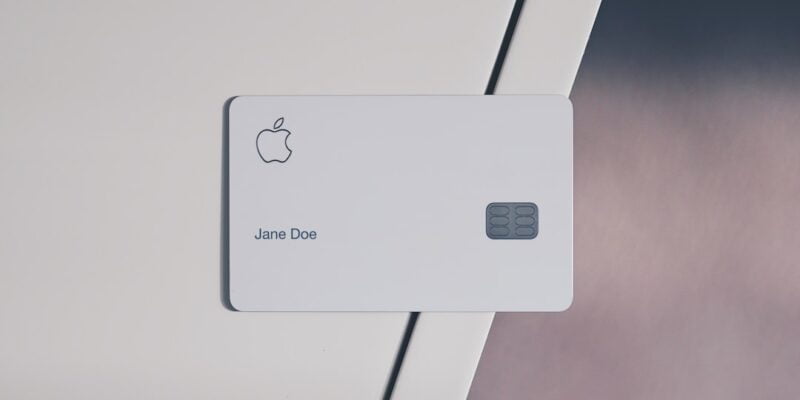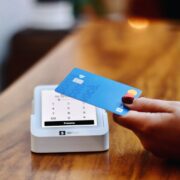
The Pros and Cons of Using Credit Cards: A Comprehensive Guide
Credit cards have become an integral part of our modern financial system. They are a convenient and widely accepted form of payment that allows consumers to make purchases on credit. A credit card is essentially a plastic card issued by a financial institution that allows the cardholder to borrow funds to make purchases, with the promise to repay the borrowed amount at a later date.
The concept of credit cards dates back to the early 20th century, with the first charge card being introduced by Western Union in 1914. However, it wasn’t until the 1950s that the modern credit card as we know it today was introduced. The Diners Club card, launched in 1950, was the first credit card that could be used at multiple establishments.
There are several reasons why credit cards have become so popular. Firstly, they offer convenience. With a credit card, you don’t need to carry around large amounts of cash or worry about finding an ATM. You can simply swipe your card and make a purchase. Credit cards are also widely accepted, both online and in physical stores, making them a convenient payment option for consumers.
Key Takeaways
- Credit cards are popular because they offer convenience and rewards.
- However, credit cards can also come with high interest rates, fees, and the risk of debt.
- Understanding your credit score and how credit cards affect it is important.
- Tips for responsible credit card use include paying on time and avoiding high balances.
- Alternatives to credit cards include debit cards, cash, and other payment methods.
The Advantages of Using Credit Cards: Convenience, Rewards, and More
One of the biggest advantages of using credit cards is the convenience they offer. With a credit card, you don’t need to carry around large amounts of cash or worry about finding an ATM. You can simply swipe your card and make a purchase. This is especially useful when traveling or shopping online, where cash may not be accepted.
Another advantage of using credit cards is the rewards and cashback programs that many credit card companies offer. These programs allow you to earn points or cashback on your purchases, which can then be redeemed for various rewards such as travel miles, gift cards, or statement credits. This can be a great way to save money or earn additional benefits for your everyday spending.
Using a credit card responsibly can also help you build a positive credit history. Your credit history is a record of your borrowing and repayment behavior, and it plays a crucial role in determining your creditworthiness. By using a credit card and making timely payments, you can demonstrate to lenders that you are a responsible borrower, which can help you qualify for better loan terms in the future.
Credit cards also offer purchase protection and insurance. Many credit cards come with built-in benefits such as extended warranties, price protection, and purchase protection. These benefits can provide you with peace of mind knowing that your purchases are protected against damage, theft, or other unforeseen circumstances.
The Disadvantages of Using Credit Cards: Interest Rates, Fees, and Debt
While there are many advantages to using credit cards, it’s important to be aware of the potential disadvantages as well. One of the biggest disadvantages is the high-interest rates and fees associated with credit cards. If you carry a balance on your credit card, you will be charged interest on that balance, which can quickly add up if not paid off in full each month. Additionally, many credit cards come with annual fees, late payment fees, and other charges that can eat into your budget.
Another disadvantage of using credit cards is the potential to accumulate debt. It’s easy to overspend when using a credit card, especially if you don’t have a clear budget or self-control. This can lead to a cycle of debt where you find yourself struggling to make minimum payments and accruing more interest charges. It’s important to use credit cards responsibly and only spend what you can afford to pay off in full each month.
Using credit cards irresponsibly can also have a negative impact on your credit score. Your credit score is a numerical representation of your creditworthiness and is used by lenders to determine whether or not to approve your loan applications and what interest rates to offer you. If you consistently carry high balances on your credit cards or make late payments, it can lower your credit score and make it more difficult to qualify for loans in the future.
Understanding Your Credit Score and How Credit Cards Affect It
| Metrics | Description |
|---|---|
| Credit Score | A numerical representation of your creditworthiness based on your credit history |
| Credit Utilization | The percentage of your available credit that you are currently using |
| Payment History | A record of whether you have paid your bills on time or have missed payments |
| Credit Age | The length of time you have had credit accounts open |
| Credit Inquiries | The number of times your credit report has been accessed by lenders or other entities |
| Credit Limit | The maximum amount of credit you are allowed to borrow on a credit card |
| Interest Rate | The percentage of interest charged on your credit card balance |
| Balance Transfer | The process of moving debt from one credit card to another with a lower interest rate |
Your credit score is a three-digit number that represents your creditworthiness. It is calculated based on various factors, including your payment history, credit utilization, length of credit history, types of credit used, and new credit inquiries. Your credit score is used by lenders to assess the risk of lending to you and to determine the interest rates and loan terms they offer.
Using credit cards responsibly can have a positive impact on your credit score. Making timely payments and keeping your credit utilization low can demonstrate to lenders that you are a responsible borrower. On the other hand, using credit cards irresponsibly, such as carrying high balances or making late payments, can lower your credit score.
It’s important to note that while credit cards can impact your credit score, they are not the only factor that lenders consider. Other types of loans, such as mortgages and auto loans, also play a role in determining your creditworthiness. It’s important to have a mix of different types of credit and to use them responsibly to maintain a healthy credit score.
Tips for Using Credit Cards Responsibly and Avoiding Debt
Using credit cards responsibly is key to avoiding debt and maintaining a healthy financial life. Here are some tips to help you use credit cards responsibly:
1. Set a budget and stick to it: Before using a credit card, it’s important to have a clear budget in place. Determine how much you can afford to spend each month and stick to that budget. Avoid making unnecessary purchases or overspending.
2. Pay off balances in full and on time: To avoid paying interest charges, it’s important to pay off your credit card balances in full each month. If you can’t pay off the full balance, at least make the minimum payment on time to avoid late fees and negative impacts on your credit score.
3. Avoid unnecessary purchases: It’s easy to get caught up in the excitement of shopping with a credit card, but it’s important to only make necessary purchases. Avoid impulse buying and think carefully before making a purchase.
4. Monitor credit card statements for errors: Regularly review your credit card statements to ensure that all charges are accurate. If you notice any errors or unauthorized charges, report them to your credit card issuer immediately.
The Pros and Cons of Balance Transfers and Cash Advances
Balance transfers and cash advances are two features offered by many credit card companies. While they can be useful in certain situations, they also come with their own set of advantages and disadvantages.
A balance transfer is the process of moving an existing credit card balance to another credit card with a lower interest rate or promotional offer. This can be a useful tool for consolidating debt or reducing interest charges. However, it’s important to be aware of any balance transfer fees and to read the terms and conditions carefully. Additionally, if you don’t pay off the transferred balance within the promotional period, you may end up paying higher interest rates than before.
A cash advance is when you withdraw cash from your credit card at an ATM or bank. While this can be convenient in emergencies or situations where cash is needed, it comes with high fees and interest rates. Cash advances also typically have no grace period, meaning interest starts accruing immediately. It’s important to use cash advances sparingly and only when absolutely necessary.
Comparing Credit Cards: How to Choose the Right One for You
With so many credit card options available, it can be overwhelming to choose the right one for you. Here are some factors to consider when comparing credit cards:
1. Interest rates and fees: Look for a credit card with low-interest rates and minimal fees. Pay attention to annual fees, late payment fees, balance transfer fees, and foreign transaction fees.
2. Rewards and benefits: Consider the rewards and benefits offered by the credit card. Look for cards that align with your spending habits and offer rewards that you will actually use.
3. Credit limit: Consider the credit limit offered by the credit card. Make sure it aligns with your spending needs and financial situation.
4. Customer service: Research the customer service reputation of the credit card issuer. Look for a company that is known for excellent customer service and responsiveness.
Credit Card Fraud and Identity Theft: How to Protect Yourself
Credit card fraud and identity theft are serious concerns in today’s digital age. Here are some tips to help protect yourself:
1. Keep your credit card information secure: Never share your credit card information with anyone unless you trust them and are making a legitimate purchase. Be cautious when entering your credit card information online and make sure you are on a secure website.
2. Monitor your credit card statements: Regularly review your credit card statements for any unauthorized charges or suspicious activity. If you notice anything unusual, report it to your credit card issuer immediately.
3. Use strong passwords: When creating online accounts or accessing your credit card information online, use strong, unique passwords that are difficult to guess. Avoid using easily guessable information such as your name or birthdate.
4. Be cautious of phishing scams: Be wary of emails or phone calls asking for your credit card information or personal details. Legitimate companies will never ask for this information via email or phone.
If you become a victim of credit card fraud or identity theft, it’s important to act quickly. Contact your credit card issuer to report the fraudulent activity and request a new card. You should also consider placing a fraud alert on your credit report and monitoring your credit for any further suspicious activity.
Alternatives to Credit Cards: Debit Cards, Cash, and Other Payment Methods
While credit cards are a popular form of payment, they are not the only option available. Here are some alternatives to credit cards:
1. Debit cards: Debit cards allow you to make purchases using funds directly from your bank account. They offer similar convenience to credit cards but do not involve borrowing money or paying interest charges.
2. Cash: Cash is the most traditional form of payment and is widely accepted. It offers the advantage of being tangible and easy to track your spending.
3. Mobile payments: Mobile payment apps such as Apple Pay, Google Pay, and Samsung Pay allow you to make purchases using your smartphone. These apps securely store your credit card information and can be used at participating merchants.
4. Online transfers: Online transfers allow you to send money directly from your bank account to another person or business. This can be a convenient way to pay bills or make purchases online.
Each alternative payment method has its own advantages and disadvantages, so it’s important to choose the one that best fits your needs and preferences.
Making Informed Decisions About Credit Card Use
Credit cards can be a valuable financial tool when used responsibly. They offer convenience, rewards, and the opportunity to build credit history. However, it’s important to be aware of the potential disadvantages, such as high-interest rates, fees, and the risk of accumulating debt.
By understanding how credit cards work, how they impact your credit score, and how to use them responsibly, you can make informed decisions about credit card use that align with your financial goals. Remember to set a budget, pay off balances in full and on time, avoid unnecessary purchases, and monitor your credit card statements for errors.
Ultimately, the key to successful credit card use is responsible financial management and self-discipline. By using credit cards wisely, you can enjoy the benefits they offer while avoiding the pitfalls of debt and financial stress.
If you’re interested in improving your sleep quality and waking up refreshed, you might want to check out this article on how to improve your sleep quality and wake up refreshed. It provides valuable tips and insights on how to achieve a better night’s sleep, which can have a positive impact on your overall well-being.
FAQs
What is a credit card?
A credit card is a plastic card that allows you to borrow money from a bank or financial institution to make purchases. The borrowed amount must be paid back with interest.
How do credit cards work?
Credit cards work by allowing you to borrow money up to a certain limit set by the bank or financial institution. You can use the card to make purchases and pay for them later. You will be charged interest on the amount borrowed if you do not pay the full balance by the due date.
What are the benefits of using a credit card?
Credit cards offer several benefits, including convenience, rewards programs, fraud protection, and the ability to build credit history.
What are the risks of using a credit card?
The risks of using a credit card include accumulating debt, paying high interest rates, damaging your credit score, and falling victim to fraud or identity theft.
How do I choose the right credit card?
To choose the right credit card, consider your spending habits, credit score, and the rewards and benefits offered by different cards. Compare interest rates, fees, and other terms and conditions before making a decision.
How can I use a credit card responsibly?
To use a credit card responsibly, pay your balance in full and on time each month, avoid overspending, and keep track of your transactions. It is also important to monitor your credit score and report any suspicious activity to your bank or financial institution.


















